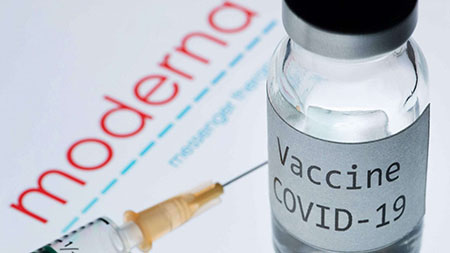by WorldTribune Staff, August 14, 2023
A new study by researchers in Europe found that 1 in 35 health care workers at a Swiss hospital had signs of heart injury associated with Moderna’s Covid booster shot, a report said.
“Damage to the heart is more common than thought after receipt” of the mRNA-1273 booster, Zachary Stieber reported for The Epoch Times.
 “mRNA-1273 booster vaccination-associated elevation of markers of myocardial injury occurred in about one out of 35 persons (2.8%), a greater incidence than estimated in meta-analyses of hospitalized cases with myocarditis (estimated incidence 0.0035%) after the second vaccination,” the researchers wrote in a paper published by the European Journal of Heart Failure.
“mRNA-1273 booster vaccination-associated elevation of markers of myocardial injury occurred in about one out of 35 persons (2.8%), a greater incidence than estimated in meta-analyses of hospitalized cases with myocarditis (estimated incidence 0.0035%) after the second vaccination,” the researchers wrote in a paper published by the European Journal of Heart Failure.
In a generally healthy population, the level would be about 1 percent, the researchers said.
The researchers defined injury as a sharp increase in high-sensitivity cardiac troponin T on the third day after vaccination without evidence of an alternative cause. The levels of cardiac troponin had to hit the upper limit of normal, 8.9 nanograms per liter in women and 15.5 nanograms per liter in men.
All workers at the University Hospital Basel scheduled to receive a Moderna booster for the first time were offered a chance to participate in the study, unless they experienced a cardiac event or underwent heart surgery within 30 days of vaccination. The workers received a booster, which is half the dosage level of the primary series shots, from Dec. 10, 2021, to Feb. 10, 2022. The cohort ended up being 777 workers, including 540 females. The median age was 37 years.
Among the participants, 40 had elevated levels of cardiac troponin. Alternative causes were identified in 18. For the other 22, the researchers determined they had “vaccine-associated myocardial injury.” The median age of the 22 was 46. All but two were women, making the percentage of women with elevated levels higher than the percentage of men (3.7 percent versus 0.8 percent), which contrasts with most of the previous literature on vaccine-induced myocarditis. That could stem from women receiving a higher vaccine dose per body weight, the researchers said.
“According to current knowledge, the cardiac muscle can’t regenerate, or only to a very limited degree at best. So it’s possible that repeated booster vaccinations every year could cause moderate damage to the heart muscle cells,” University Hospital Basel professor Christian Muller, a cardiologist and the lead researcher, said in a statement.
“The long-term implications of the study remain unclear as little research has tracked people over time with heart injury after messenger RNA vaccination, which is known to cause myocarditis and other forms of heart damage,” Stieber noted.
Several studies have examined myocarditis following the Pfizer injection.
In Thailand, researchers found that 29 percent of 301 adolescents developed cardiovascular effects, including chest pain, after a second Pfizer dose. Seven were diagnosed with heart inflammation.
Researchers in Taiwan established baseline electrocardiogram levels before a second Pfizer dose and recorded abnormal results following the administration in one percent of 4,928 primary school students. That included five students diagnosed with myocarditis or an abnormal heartbeat.
And an Israeli study of 324 health care workers with a median age of 51 who received a second Pfizer booster identified two cases of vaccine-induced heart injury on day three.
Other recent studies have confirmed that vaccine-induced myocarditis can kill, including a South Korean study that ruled out all other possible causes for eight sudden deaths following messenger RNA vaccination. Myocarditis was not suspected as a clinical diagnosis or cause of death before autopsies were performed, researchers said.
Hello! . . . . Intelligence . . . . Publish
